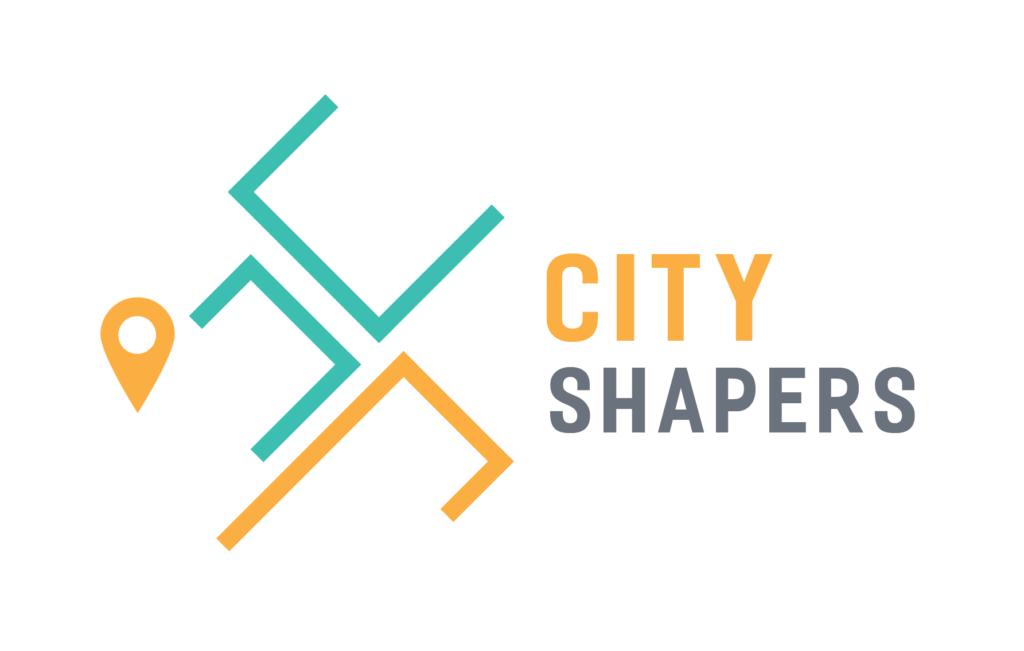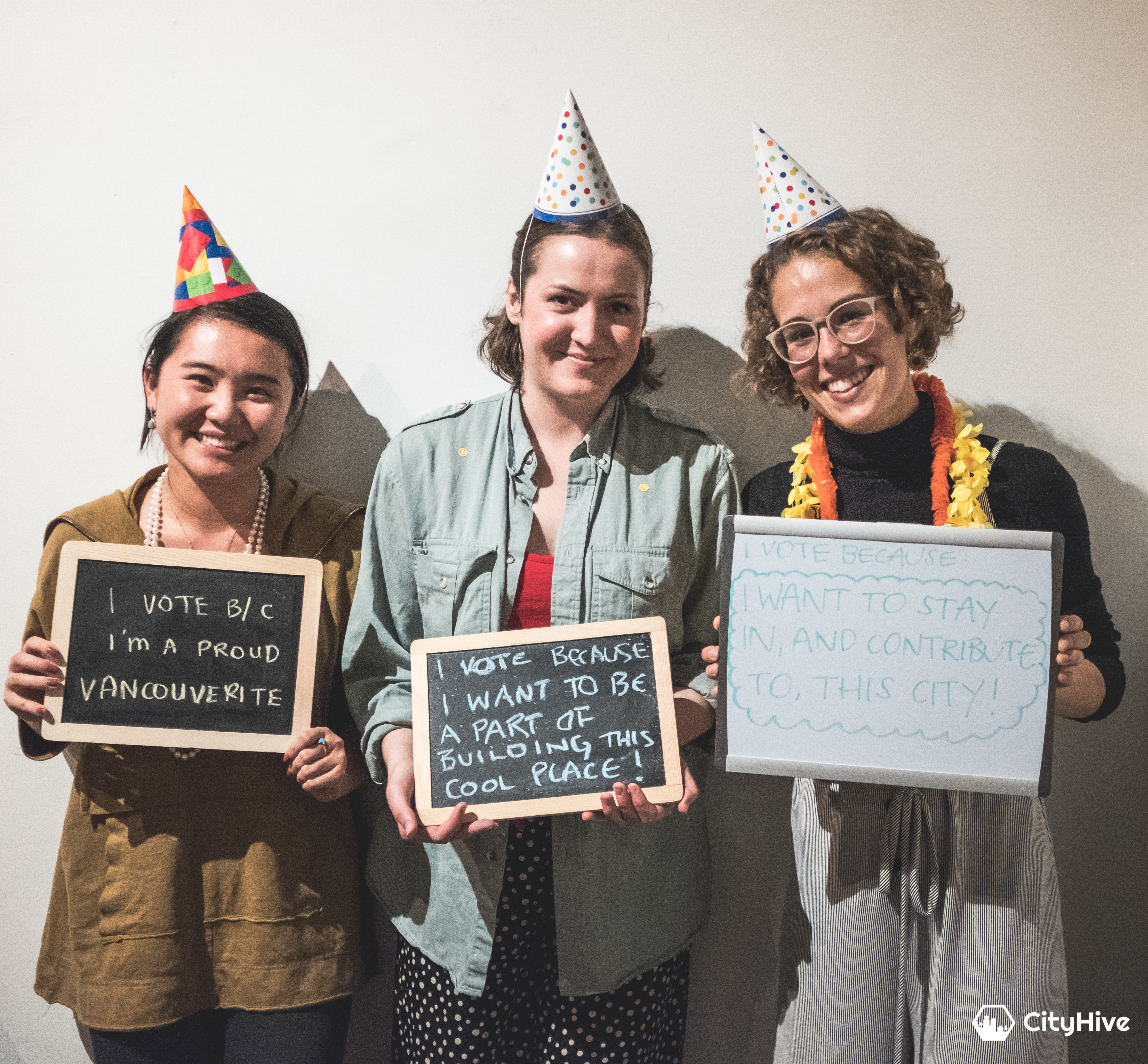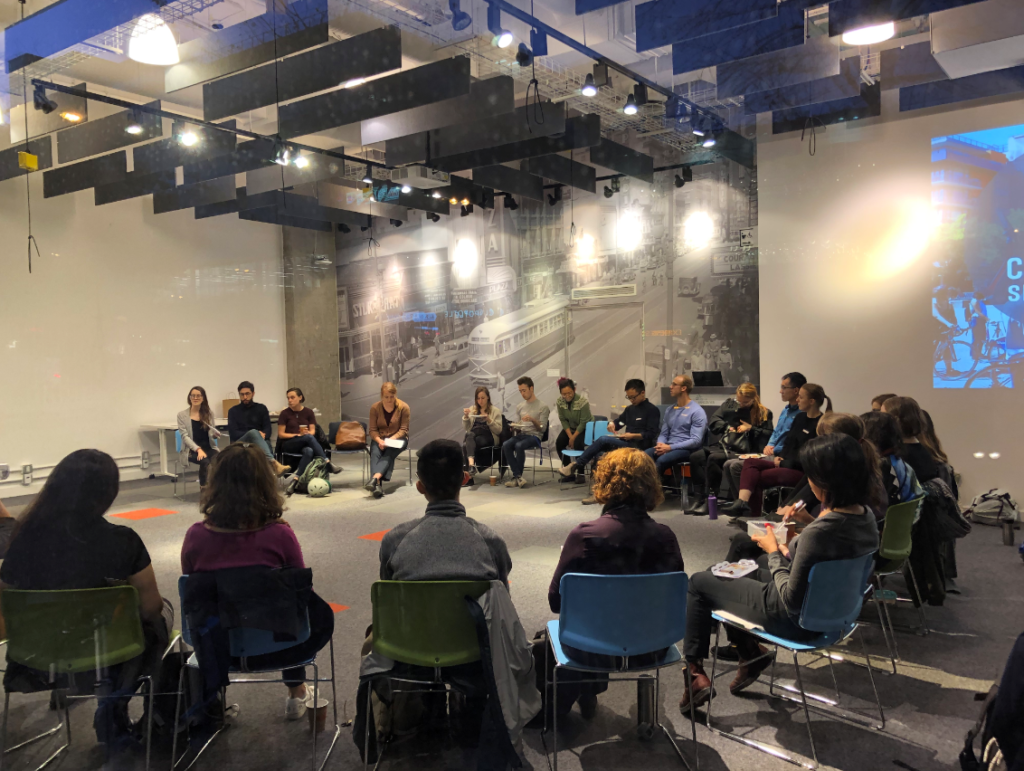
City Shapers is a civic education cohort program for Metro Vancouver youth ages 18-30. Participants learn about how cities work, how decisions are made, and how they can get involved. Past cohorts of the program have focused on social isolation, resilient communities, and public space.

Overview
The program explores the roles of both traditional (e.g. voting, running for office) and less traditional/more informal examples (e.g. engaging in online discussions, community activism) of civic engagement and change-making. By developing a sense of agency at the neighbourhood/community level and a deeper understanding of how government works through participating in a cohort model, participants learn how to become more active in their communities and government decision-making.
In 2019 and 2020, City Shapers was run in partnership with the SFU Morris J Wosk Centre for Dialogue’s Strengthening Canadian Democracy Project. Over the two years, three cohorts, each of approximately thirty youth ages 18-30 explored pressing urban issues, with an emphasis on the municipal level and local decision-making. Guest speakers and presenters included professionals, elected officials, city staff, and community leaders. This program was rooted in the Centre for Dialogue’s ‘Principles for Democratic Engagement’:
- Nurture government and citizen capacity: We nurture citizen and government agency by deepening knowledge, skills and capacity for democratic engagement
- Trust and Connectedness: We build trust and connectedness by being open, honest, effective, and transparent
- Inclusive and Accessible: We create inclusive and accessible spaces giving voice to the needs of all citizens including equity-seeking, underserved and marginalized communities
- Accountable and Responsive: We are committed to public decision-making processes that are accountable and responsive to citizen’s participation
- Democratic Principles and Values: We foster commitment to principles and values that strengthen democracy through our activities and interventions
Response to COVID-19
The initial plan for the City Shapers program was to host all three SFU-affiliated cohorts in person in fall 2019, spring 2020, and early summer 2020. After the spring 2020 cohort on Public Space had to be postponed (and ultimately cancelled) in response to COVID-19 physical distancing requirements, plans were put in place to host new cohorts online. Initial applications for City Shapers: Resilient Communities revealed overwhelming interest, leading to the delivery of two semi-concurrent cohorts through May-Jun and Jun-Jul on the same topic.

Program Themes & Flow
Each cohort centered on a specific topic or theme to provide a lens with which to explore the broader realms of civic engagement and decision-making. The themes to date have been:
- Social Isolation: Sept-Nov 2019
- Resilient Communities: May-Jun 2020 and Jun-Jul 2020
- Public Space: Jun-Aug 2021
This program was based in a knowledge-to-action framework, moving from learning and community-building towards the development of group projects.
Evaluation
The evaluation process for this program was established in partnership between CityHive and Centre for Dialogue. Evaluation questions assessed: 1) changes in perceptions of democracy and democratic values; 2) whether the program met learning objectives (e.g. participants develop greater confidence interacting with decision makers, build connections with other members of the cohort); and 3) general feedback and suggestions for improvement. The evaluation will be used to inform future cohorts and potential iterations of the program. Reports and results from this evaluation process can be found here.
